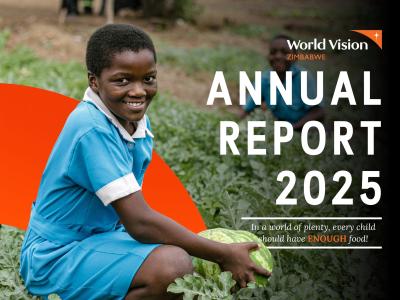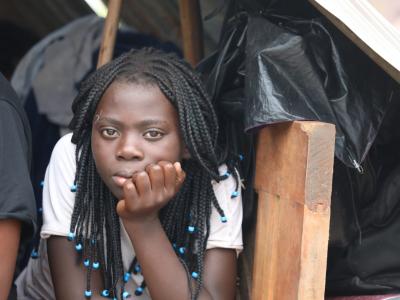publication / February 19, 2026
World Vision Zimbabwe Gift-in-Kind 2025 Impact Report
Through the Gift-In-Kind (GIK) program, we deliver essential resources that provide both immediate relief and long-term support to those in need. This FY2025 report highlights our impact through GIK.
publication / February 4, 2026
Gifts-In-Kind Fiscal Year 2025 Annual Report
The World Vision Zambia Gifts-In-Kind (GIK) Fiscal Year 2025 Annual Report highlights the transformative power of non-cash donations in advancing the well-being of the nation’s most vulnerable children. Throughout the year, the program strategically integrated high-value goods, ranging from essential medical equipment to educational materials and mobility aids, into its core technical programs.
article / February 11, 2026
Transforming Education in Mokhotlong: The Impact of World Vision’s Gift-in-Kind Programme
Lack of school supplies affected learners in Mokhotlong. World Vision’s Gift-in-Kind support is improving attendance, confidence, and learning
article / February 8, 2026
World Vision Delivers Life-Saving Impact Through Strategic Gift-in-Kind Distribution in Somalia
World Vision is complementing donor support through GIK
video / January 30, 2026
Beyond Work: Literacy as a Divine Calling
Watch how Clement, our ZREAD Development Facilitator, lives out the call of Christ by bringing the gift of literacy to the heart of the community. For Clement, teaching a child to read is more than a professional task; it is a sacred act of service. By empowering children with the tools to understand the world and the Word, he is directly answering the command to bring hope to the hopeless. His work ensures that no child is left in the shadows of illiteracy, but instead, is given a clear path to a brighter, more promising future.
publication / February 17, 2026
World Vision Zimbabwe 2025 Annual Report
In this 2025 Annual Report, discover powerful stories that highlight World Vision Zimbabwe's (WVZ) transformative impact on the lives of the most vulnerable children. Driven by an unshakable dedication to championing the well-being of girls and boys in need, we are strategically refocusing and amplifying our efforts to tackle extreme vulnerability head-on.
article / February 17, 2026
A New Flow of Opportunity at Nerutanga Primary
Through Gift-in-Kind support, the school also received eight bicycles, stationery supplies, and 208 satchels for learners — restoring dignity and boosting children’s confidence, particularly those from vulnerable households.
opinion / February 20, 2026
Mozambique’s Children Are Paying the Price for a Crisis They Didn’t Create
Juma Ignatius, Senior Policy Advisor, Climate Action and Disaster Risk Reduction, Disaster Management, brings our attention to the recent Mozambique floods that are often framed as natural disasters, but in reality, it is a story of global inequality, climate inaction and decades of neglect paid for by children who did nothing to cause the crisis. As emergency aid is repeated and preparedness is ignored, based on the negotiations within the UNFCCC spaces, Juma argues that without a shift to Disaster Risk Reduction, Anticipatory Action and climate-resilient development, disasters will continue to steal childhoods.





